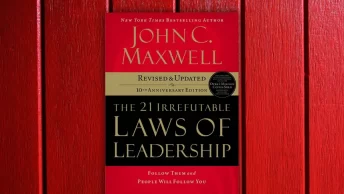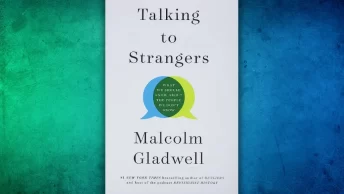Outliers PDF is a book written by Malcolm Gladwell and published in 2008. It explores the themes of success and achievement, looking at how different factors can contribute to a person’s success. The book has been widely praised, with many reviewers calling it thought-provoking and insightful.
Gladwell draws on a range of examples to support his ideas, including the stories of Bill Gates, the Beatles, and Canadian hockey players. He argues that success is often the result of a combination of factors, including talent, opportunity, and hard work.
Outliers have been extremely popular, with many people finding its message inspiring and eye-opening. The book has sold millions of copies and has been translated into over 30 languages. If you’re looking for an interesting read that will make you think about success in new ways, then the Outliers pdf is definitely worth checking out.
Table of Contents
Download Outliers PDF Online
Click the download button below to download a free pdf of Outliers book.
Synopsis
Outliers is a book about success. But it’s not just any book about success. It’s a book about how some people are more successful than others. The author, Malcolm Gladwell, is a journalist and bestselling author. He’s written books like The Tipping Point and Blink. In Outliers, he takes a closer look at what it takes to be successful.
In Outliers, Malcolm Gladwell examines the factors that contribute to success. He looks at a range of examples, including the stories of Bill Gates, the Beatles, and Canadian hockey players. Gladwell argues that success is often the result of a combination of talent, opportunity, and hard work.
For instance, he discusses how Bill Gates became one of the richest men in the world. Gates is obviously intelligent and hardworking. But Gladwell argues that there’s more to his story than just that.
Gates had access to a computer at a time when few people did. This gave him a huge advantage over other people his age. He was able to get ahead and ultimately become one of the most successful people in the world. Gladwell also looks at the stories of other successful people, like the Beatles and Canadian hockey players. He argues that they, too, benefited from favorable circumstances.
This isn’t to say that these people didn’t work hard. They did. But Gladwell argues that their success was also due in part to factors beyond their control. Outliers is an interesting and thought-provoking book. If you’re interested in success, it’s definitely worth a read.
Critical Reception
“Outliers” by Malcolm Gladwell has generally received positive critical reception since its publication in 2008. The book has been praised for its engaging storytelling, thought-provoking arguments, and insightful analysis of success and achievement.
Some critics have lauded Gladwell’s ability to connect seemingly disparate topics and ideas, weaving them into a cohesive narrative that challenges conventional wisdom. Others have appreciated his use of real-world examples and case studies to support his arguments, making the book both relatable and informative.
However, there have also been some criticisms of the book. Some have accused Gladwell of oversimplifying complex issues and cherry-picking data to support his arguments. Others have pointed out that some of the examples he uses to illustrate his points may be outdated or not representative of the larger population.
Despite these criticisms, “Outliers” has remained popular and has been widely read by a diverse audience. It has also been praised for its accessibility, making complex topics and ideas easy to understand and engage with. Overall, while not without its detractors, the critical reception of “Outliers” has been largely positive, cementing Gladwell’s place as a popular and influential writer.
Multiple Languages Editions of Outliers Book
Outliers book has been translated into over 30 languages, making it accessible to readers all over the world. The book’s message is universal, and its popularity continues to grow.
| Book Editions | Check Now |
|---|---|
| English | Check Price |
| German | Check Price |
| French | Check Price |
| Spanish | Check Price |
| Hindi | Check Price |
| Arabic | Check Price |
| Russian | Check Price |
| Portuguese | Check Price |
| Chinese | Check Price |
| Japanese | Check Price |
About Malcolm Gladwell
Malcolm Gladwell is a journalist and bestselling author. He’s written books like The Tipping Point and Blink. In Outliers, he takes a closer look at what it takes to be successful.

Gladwell was born in England in 1963. He moved to Canada with his family when he was just six years old. He grew up in Ontario and attended the University of Toronto.
Gladwell began his career as a journalist, working for various magazines and newspapers. In 1996, he joined The New Yorker. He’s been writing for the magazine ever since.
In addition to Outliers, Gladwell has written several other books, including The Tipping Point and Blink. He’s also a popular speaker, and he has given TED talks on a variety of topics.
Gladwell’s work has been praised by many, and he is considered one of the most influential writers of our time. If you’re interested in success, his work is definitely worth checking out.
Purpose of Author to Write this Book
The purpose of Malcolm Gladwell’s book “Outliers” is to challenge the notion of individual achievement as a purely personal accomplishment and to explore the idea that success is often the result of various external factors that are beyond an individual’s control. Through a series of case studies and anecdotes, Gladwell examines the cultural, societal, and historical contexts that have contributed to the success of some of the world’s most accomplished individuals, including athletes, musicians, entrepreneurs, and more. The book also explores the concept of the “10,000-Hour Rule,” which suggests that it takes roughly 10,000 hours of practice to become an expert in a particular field. Overall, Gladwell seeks to demonstrate that success is not simply a matter of talent or hard work, but is often the result of a combination of unique opportunities, cultural legacies, and other external factors that can make all the difference.







